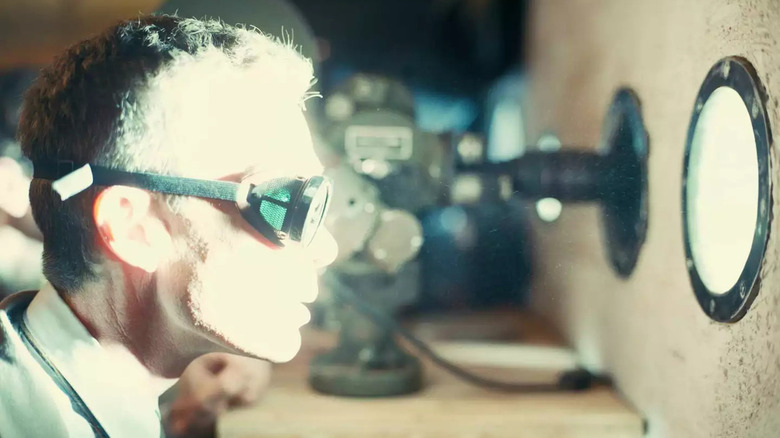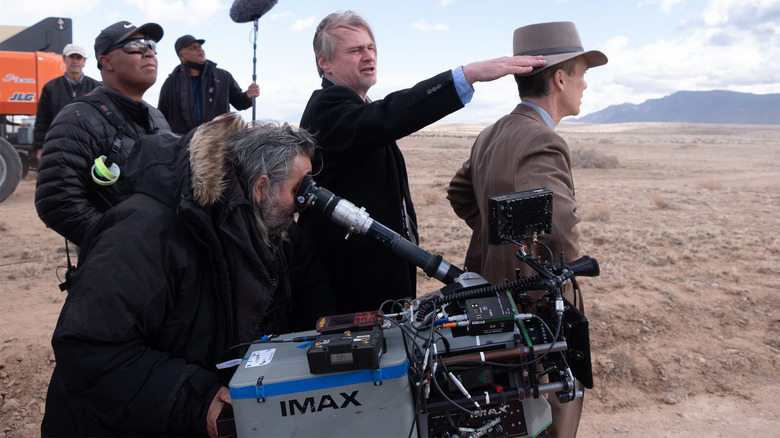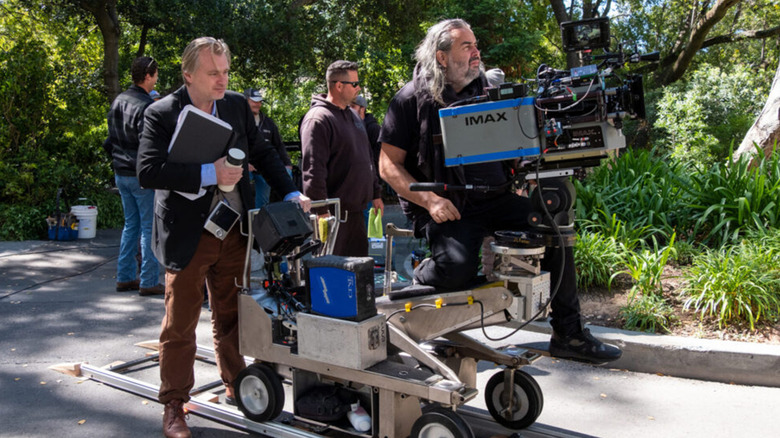Christopher Nolan Says AI Could Not Have Predicted Oppenheimer's Success
Amid our nostalgia-mad monoculture, in the age of legacy sequels and the franchise-ation of movies, it often seems like we're in some sort of endlessly repeating paroxysm of déjà vu. Hollywood is notorious for doubling down on anything even marginally successful, often to disastrous effect. Take a look at the current plight of the Marvel Cinematic Universe, which has become so ubiquitous and tiresome that 2024 could be Kevin Feige's last chance to save it. Similarly, in the wake of the MCU's dominance, studios have attempted their own version of a shared universe and mostly failed. "John Wick: Chapter 4" was an example of cinematic universe-building done right, but even Lionsgate struggled to expand that universe into prestige TV, with the ultimately pointless "The Continental" series.
Make no mistake, we're in for a continuing deluge of legacy sequels and IP fetishization, as studios scramble for some sort of consistency amid the unfamiliar environs of the streaming age. Making matters worse is the looming shadow of AI, which, as Joe Russo has gleefully reminded us on several occasions, will soon be writing our movies for us and even perhaps putting each audience member at the center of whatever hollow pastiches it regurgitates after trawling the online archives for "inspiration."
It's all a bit bleak, isn't it? Thankfully, there's hope. You'd think Hollywood might have gone back to the drawing board long ago and tried to dream up some original ideas. But it's taken until 2023 for the discourse to shift in that direction. In the wake of the MCU's struggles, general superhero fatigue, and waning box office profits, there's been a lot more talk about how Hollywood might diversify its output going forward — especially following the unlikely success of "Oppenheimer."
Oppenheimer: An anti-AI argument in film form
When you couple our aforementioned cultural woes with the ongoing barrage of bland streaming "content" to which we're subjected, things could easily start to feel a bit hopeless. But there's every reason to feel hopeful. The new generation of filmmakers delivering such exhilaratingly brilliant and novel projects as "Aftersun" and "Skinamarink" is one bright spot amid the gloom. Yet more reassuring is the very existence of Christopher Nolan himself, whose "Oppenheimer" brought in almost a billion dollars worldwide in 2023 — not bad for a three-hour movie that's mostly scientists and politicians in offices discussing quantum physics and whisper-shouting about the end of the world.
Not content with proving a point about originality being lucrative with his billion-dollar blockbuster, Nolan has used press opportunities to emphasize the need for original ideas and warn against the pitfalls of AI in our current moment. Take the recent interview with Empire, for example, in which the esteemed director was asked about the current state of cinema and responded with this:
"I've just made a three-hour film about Robert Oppenheimer which is R-rated and half in black-and-white — and it made a billion dollars. Of course I think films are doing great. The crazy thing is that it's literally the most successful film I've ever made. I've been doing this for 20 years and in the United Kingdom it's my highest-grossing film. So I feel great about the state of the movie business, based on my own experience. But also based on seeing other movies break out, seeing audiences come back."
With Nolan remaining this sanguine about things, there really shouldn't be too much for us to worry about. But even one of the most celebrated contemporary auteurs can't ignore the specter of AI.
Nobody knows anything, not even AI
After being told that his film "fits no known formula" and reminded of William Goldman's quote, "Nobody knows anything," Christopher Nolan went on to tell Empire that the success of his film "Could not be predicted by Al." Seemingly keen to downplay the importance of artificial intelligence at this most crucial time, the director then delivered this much-needed defense of original ideas:
"When we look at Hollywood films and theatrical distribution, we get distracted by the success of the familiar. Sequels to franchise properties have always been the bread and butter of the industry — the things where you can predict a certain level of success. They give stability to an otherwise very, very variable business model. But the audience's desire to be surprised, to see something new, to see something they did not know they wanted, that's always been the most powerful force in theatrical film. So it was wonderful to see that this year."
While Nolan seemed to be addressing the use of AI as a market research tool rather than a script-writing tool, he nonetheless seems wary of the concept as a whole. The director has warned against trusting AI as some sort of all-powerful entity, though he did tell Wired in June 2023 that he'd welcome its use as an enhancement tool, saying:
"I want to use technology for what it's best for. Like if we do a stunt, a hazardous stunt. You could do it with much more visible wires, and then you just paint out the wires. Things like that."
Much like David Fincher's approach to using sparing, "invisible" CGI, Nolan seems to think the proper application of AI should be to enhance what's already there. But his point about the technology not being able to predict "Oppenheimer" being a success is just as important.
AI isn't going anywhere
2023 saw the Writer's Guild of America hold a prolonged strike, partly due to proposals from the major studios that failed to regulate the use of AI in any way. Ultimately, the new WGA deal that was struck did include regulations, establishing that AI-generated material will not be considered source material, allowing writers to retain their usual rights even when AI-generated material is being used. Studios will also be prevented from forcing writers to use AI and must inform them when the technology has been used on whatever project they're working on. All of which is a huge win for the guild.
But there are still numerous issues surrounding AI and the film industry. While Disney is busy making digital versions of their extras, and creating an AI task force that will, according to Reuters, "touch virtually every corner of the company," the risk is not just that we'll see some awful AI-written movies, but that AI will be making the decisions about which movies get the greenlight in the first place. As most of us are now aware, for now these so-called intelligent systems are trained on existing datasets — that is until we reach so-called General Artificial Intelligence. This raises the important question of whether a film like "Oppenheimer" would, indeed, have been given the go-ahead in a studio system run by the nascent technology.
Thankfully, as long as filmmakers like Nolan are sounding the alarm, and creators like the guys behind "Spider-Man: Across the Spider-Verse" are asserting that AI is not the future of animation, there remains some hope that AI will not be allowed to become this century's version of the atomic bomb.



